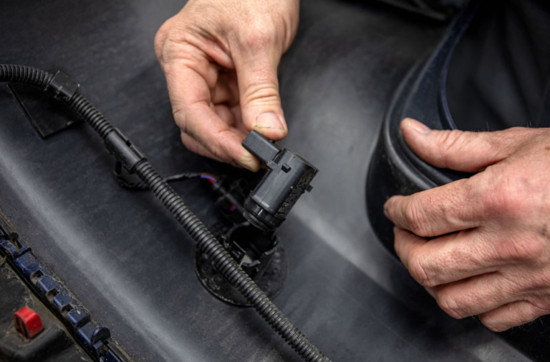Park Distance Control failure knowledge increasingly important: Hella
 A Park Distance Control sensor
A Park Distance Control sensor
Knowledge of advanced driver assistance systems (ADAS) is becoming a necessary requirement in the aftermarket as more vehicles with these systems are entering the workshop. Hella is an ADAS specialist that not only designs and manufactures many of the sensors and radars on which these systems rely, but through its subsidiary, Hella Gutmann Solutions (HGS), has been educating the industry in the importance of ADAS calibration and its repercussions for independent businesses for more than a decade.

Technological tipping points are not always easy to identify, and the pace of change in the automotive industry can make it a challenge for garages not affiliated with new car dealerships to stay on top of new carfeatures as they begin to require repair. Advanced Driver Assistance Systems (ADAS) are emblematic of this, and considering their centrality to the safe operation of many new cars, the stakes have also risen. Tyres & Accessories magazine visited Hella Gutmann Solutions’ (HGS) facilities in and around Ihringen, Germany to see how the supplier of diagnostic and camera and sensor recalibration solutions is responding to garages’ increasing need for new equipment, technician training, and data, to address the rise of ADAS.
Parking related assistance is a common ADAS technology that helps drivers during parking manoeuvres and it is park distance control (PDC) that warns them of obstacles in the immediate vicinity of the vehicle, which means it is an important element within these systems.
The traditional PDC operates on the basis of ultrasound, which is emitted using several sensors and if an obstacle is detected, they alert the driver. The more ultrasonic sensors installed and spread out across the width of the vehicle, the more accurate the measurement result will be. Depending on the vehicle or on the system, LED displays, graphic representations on the screen or purely sound signalling devices can be installed.
PDC is a feature utilised by many manufacturers including Volkswagen, Seat, Skoda, BMW, Toyota, Ford, Mazda, Range Rover and Volvo, although the designation varies.
If the PDC fails, the fault lamp lights up (system-dependent) or an error entry in the control unit.
The following causes can be responsible for the failure of the PDC:
- Power supply faulty
- External damage to bumper or sensors
- Defective ultrasonic sensor
- Defective sound signalling device (beeper)
- Defective control unit


 Impression
Impression
Comments